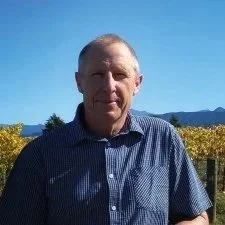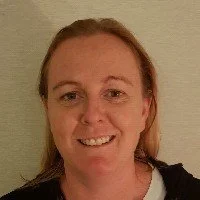This year’s Innovation Series has explored how innovation and sustainability are shaping the future of farming. For our final event of the year, we turn to one of the most pressing challenges facing agriculture: biosecurity.
From invasive pests and diseases to global supply chain risks, biosecurity is critical to maintaining the resilience of New Zealand’s farming systems. With changing trade dynamics, climate shifts, and increasing movement of people and goods, the risks are greater than ever—but so too are the opportunities for innovation.
How can New Zealand harness science, technology, and policy to strengthen our biosecurity system while supporting productivity and market access? Join us as leading experts share insights into the tools, research, and strategies that will protect our food, farms, and natural environment for generations to come.
This special Innovation Series event is brought to you in partnership with Lincoln University's Centre of Excellence in One Biosecurity Research, Analysis and Synthesis (COBRAS), which brings together researchers, industry, and government to design innovative, integrated biosecurity solutions for New Zealand.
Tuesday 4 November
9.00am - 1.30pm
S1, Stewart Building, Lincoln University
Programme
9.00am: Welcome & Introductions
Introductions from Distinguished Professor Phillip Hulme, Lincoln University
Opening remarks to set the stage for a day exploring how innovation in biosecurity underpins the future of farming in New Zealand.
Session 1: Frontline Defences – Innovation at the Border
9.15am – 10.20am
This session explores how science and technology are reshaping border biosecurity, from early detection and diagnostics to predictive modelling and smarter surveillance.
9.15am Keynote Speaker 1 – Matt Dyck, KVH
Matt will discuss how the kiwifruit industry is using innovation, grower engagement, and industry–government partnerships to protect crops from biosecurity threats and ensure continued market access.9.40am Keynote Speaker 3 – Kirsty Brennan, Lyttelton Port Company
Kirsty will discuss how ports are addressing the growing challenges of biosecurity with increased pressures relating to the effects of climate change and nature loss. She will highlight how LPC are assessing risks relating to invasive species and the actions they are taking to reduce the pressures and improve resilience.10.05am: Session Summary & Q&A – Prof. Phillip Hulme
10.15am: Break
Session 2: Farm Gate Biosecurity – Building Resilience On-Farm
10.50am – 11.55am
Farms are the frontline of any response when pests slip though the border. This session examines tools and practices that protect livestock, crops, and soil health from emerging threats.
10.50am Keynote Speaker 1 – Laurence Smith, ECAN
Laurence will present on various aspects of biosecurity compliance, from regulating ‘legacy’ pests such as gorse, broom, and Nassella tussock to understanding of future threats, and the importance of pathway management on farm.11.10am Keynote Speaker 2 – Courtney van Beek, Onside
Courtney will present how digital tools and real-time data are helping farmers track movements of people and vehicles on and off properties, improving traceability and farm biosecurity resilience.11.30am Keynote Speaker 3 – Jim Herdman, New Zealand Winegrowers
Jim will share the wine sector’s perspective on managing biosecurity risks, highlighting how growers are working with industry and government to protect vineyards from emerging threats. He will discuss the unique vulnerabilities of viticulture, the sector’s preparedness strategies, and the importance of collective action to safeguard New Zealand wine’s global reputation.11.55am: Session Summary & Q&A – Prof. Phillip Hulme
12.10pm: Break
Session 3: Future Horizons – Policy, Partnerships and Innovation for a Secure Food System
12.20pm – 1.25pm
The final session looks at the big picture—how policy, collaboration, and innovation can deliver a robust, future-proof biosecurity system.
12.20pm Keynote Speaker 1 – Distinguished Prof. Philip Hulme, Lincoln University
Philip will make the case for a more joined up biosecurity system across human, animal, plant and ecosystem health and introduce the concept of One Biosecurity and it role in delivering One Health12.40pm Keynote Speaker 2 – Peter Thomson, MPI
Peter will outline MPI’s approach for safeguarding New Zealand’s biosecurity, focusing on how partnerships and policy are underpinning resilience across the food system.1.00pm Keynote Speaker 3 – Fi Roberts, DairyNZ
Fi will share the dairy sector’s perspective on biosecurity, focusing on how practical, farmer-led solutions and strong partnerships can build resilience across the industry and safeguard future productivity.
1.25pm: Session Summary & Q&A – Prof. Phillip Hulme
Closing Remarks & Networking
1.30pm: Event Concludes
Our Speakers
Distinguished Professor Philip Hulme
Distinguished Professor Philip Hulme is an internationally recognised biosecurity scientist whose research focuses on preventing and mitigating biological invasions by pests, weeds, and pathogens. With over 33,000 citations on Web of Science and consistent recognition as a Highly Cited Researcher, he combines fundamental ecological and epidemiological insights with assessments of human drivers such as trade, wealth, and non-market impacts. He has held key roles nationally and internationally, including lead author for the Intergovernmental Science-Policy Platform on Biodiversity and Ecosystem Services, membership on the NZ Biosecurity Ministerial Advisory Committee, and advisory roles with Environment Canterbury, the QEII National Trust, and Zespri. His recent projects explore themes across human, animal, plant, and environmental health, including citizen science and the socioecological drivers of antimicrobial and pesticide resistance.
Matt Dyck, KVH
Matt is KVH’s Biosecurity Manager, leading efforts to reduce the risk and impact of biosecurity incursions on New Zealand’s kiwifruit industry since 2013. With strong technical expertise and international networks, he works closely with MPI and Zespri Innovation to prepare for and respond to emerging threats, including fruit fly and brown marmorated stink bug. Matt’s background spans marine science, aquaculture management in Malaysia, and selective breeding projects in Singapore, bringing a broad perspective to his role.
Kirsty Brennan, Lyttelton Port Company
Kirsty Brennan is with Lyttelton Port Company, where she leads initiatives to integrate biosecurity into port operations. Her work focuses on managing risks associated with high trade volumes and fostering innovation to strengthen New Zealand’s frontline biosecurity.
Laurence Smith, ECAN
Laurence Smith, Principal Advisor - Biosecurity. Laurence has 45 years’ recognised service in pest management with Environment Canterbury and experience ranging from service delivery, to managing teams and since 2011 as a technical advisor. Gaining compliance with regulation has been a strong feature across the years. Other work includes assisting with the development of Regional Pest Management Plans, experience with incursion response, pathway management, surveillance and investigations. In more recent times promoting passive surveillance and farm biosecurity have been a strong aspect of his work. Understanding the barriers to land occupiers reporting invasive species, controlling entrenched species and implementing initiatives to prevent incursions on their land has been of great interest.
Jim Herdman, New Zealand Winegrowers
Jim Herdman is the Biosecurity Advisor for New Zealand Winegrowers, where he works to raise biosecurity awareness and support winegrowers in developing vineyard biosecurity plans and implementing biosecurity best practices within their vineyards. His work includes developing planning, training and reference resources and evaluating pest and disease risks that threaten vineyard resilience. He also maintains the national biosecurity vineyard register.
Jim has a background that includes forestry, agriculture, and viticulture and has also worked on biosecurity, biodiversity, and asset management projects across central and local government. Jim has also participated in emergency management programmes and deployments at local, regional, and international levels.
Courtney van Beek, Onside
Courtney van Beek is Head of Product at Onside and an expert in digital product, taking a human-centred, design-led approach to solving complex challenges. With a background in digital products in New Zealand and abroad, he leads the Onside product, design, and engineering teams to create tools that strengthen farm biosecurity and health & safety, delivering solutions that are practical and beautifully simple for farmers and industry to use.
Peter Thomson, MPI
Peter Thomson is MPI’s Chief Biosecurity Officer, responsible for leading system-wide strategy, assessing performance, and connecting participants across New Zealand’s biosecurity system. He provides assurance and oversight for Biosecurity New Zealand and MPI leadership, supports Chief Technical Officers under the Biosecurity Act, drives research impact, and strengthens conservation partnerships, including with the Department of Conservation.
Fi Roberts, DairyNZ
Fi Roberts is part of DairyNZ, where she focuses on strengthening the dairy sector’s biosecurity by championing practical, farmer-led solutions and fostering strong partnerships. Her work centres on building resilience across the industry and safeguarding long-term productivity.
Click here to see more events








